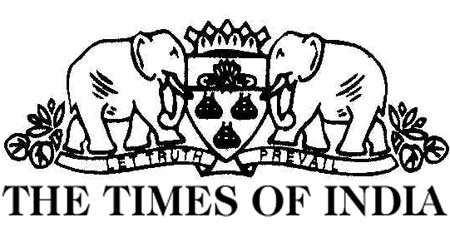 http://timesofindia.indiatimes.com/home/opinion/edit-page/West-and-the-rest/articleshow/9700177.cms
http://timesofindia.indiatimes.com/home/opinion/edit-page/West-and-the-rest/articleshow/9700177.cms
As the United States and Europe struggle to contain their debt crises, the decline of the West and ‘the rise of the rest’ increasingly shape the international political discourse. Analysts around the world predict the dawn of a new world order led by mostly non-western giants such as China, India and Brazil, and wonder about the nature of that new order.
Analogies between the United States and the declining Roman Empire abound. Yet rather than seeking to overturn the western world order, the distinguishing feature of the post-western world will be the rising powers’ contestation of the western monopoly on defining modernity. This will be the true battleground of the 21st century.
Declinism has been a constant feature in the American narrative since the 1950s, when the Soviet Union launched the Sputnik. Yet today’s gloom is more soundly based than its predecessors, and today’s rising powers – principally China, India and Brazil – show more dynamic and constant growth than the Soviet Union was ever capable of. The end of American dominance is so certain that we can even predict fairly accurately when it will take place. In 16 years from now, in 2027, the US will pass the baton to China, which will become the largest economy in the world. Several decades later, India’s economy may relegate America to the third spot.
Yet western fears of an anti-systemic alliance in the form of the BRICS are misguided. Emerging powers’ critique and call for more responsibility within the existing structures prove, if anything, their conviction that the fundamentals of the system are sound. In this regard, the western world order is likely to persist, even under non-western leadership. The system’s underlying principles of rules and economic openness are too compelling, and its structure too mutually beneficial for rising powers to undermine it.
Rather than overturning a system that has helped emerging powers rise in the first place, non-western powers will focus their energy on redefinition and the symbols of modernity. In the post-western world, modernity is no longer embodied by western powers, but will be openly disputed between different actors, both western and non-western.
For most of the 20th century, the US was not only the most powerful nation on earth, it also embodied the ultimate modernity and virtually all countries around the world sought to emulate it. The terms “first world” and “third world”, coined after World War II, make this abundantly clear. In some countries this happened openly; in others, where ideology or nationalist pride made it impossible to admire America, it took place in a more subtle fashion.
Yet the current financial crisis, the delegitimisation of the US-led financial system and China’s, India’s and Brazil’s ability to continue their growth story pre-sage a world in which modernity is openly contested between the US, China, India and Brazil. This change of guard is most visible in Africa, where an increasing number of leaders seek to emulate China rather than trying to copy a western power.
The impatience of emerging powers to end the West’s monopoly over modernity explains their eagerness to build the highest building, the fastest train, and to organise the most sophisticated Olympic Games ever – projects that, while questionable from an objective cost-benefit analysis, are of immense symbolic value in the quest to embody modernity. Rather than merely military power or per capita GDP, a country must offer a compelling mix of dynamism, growth and optimism to convince others to emulate it.
The West will struggle hardest to come to terms with this new reality. Its ability to set global standards and present itself as the ultimate modernity has made western countries, especially the US, extremely self-confident and, paradoxically, dogmatic and parochial. Contrary to any other civilisation on earth, the West never had to learn to fundamentally adapt to foreign norms. In some instances, non-western concepts have been taken up – one may think of Arabic numbers – but western cultures never experienced the trauma of African, American-Indian, Arabic, Indian or Chinese peoples who saw themselves forced to let go of a significant part of their cultural DNA and adopt western norms.
So resounding was the West’s success over the past several centuries that it became difficult to distinguish between modernisation and westernisation. Today’s debates in Europe and the US about immigration and the end of the western-style welfare state portend a long and arduous process of revising loyalties and long-held convictions.
What should established western powers do about the looming arrival of the post-western world? Essentially, they must assure that the demands of emerging non-established actors for more decision-making power within the established structures are satisfied – provided that they are willing to contribute to the provision of public goods. The inclusion of rising powers will provide existing structures the necessary legitimacy to address the world’s most pressing challenges. Only through the established powers’ refusal to grant rising non-western actors more weight would the latter turn into a unified, anti-western bloc so feared by the West.
The writer is a professor of international relations at the Getulio Vargas Foundation in Sao Paulo, Brazil.
Read also:
New article: “Identity and the concept of the West: The case of Brazil and India”








